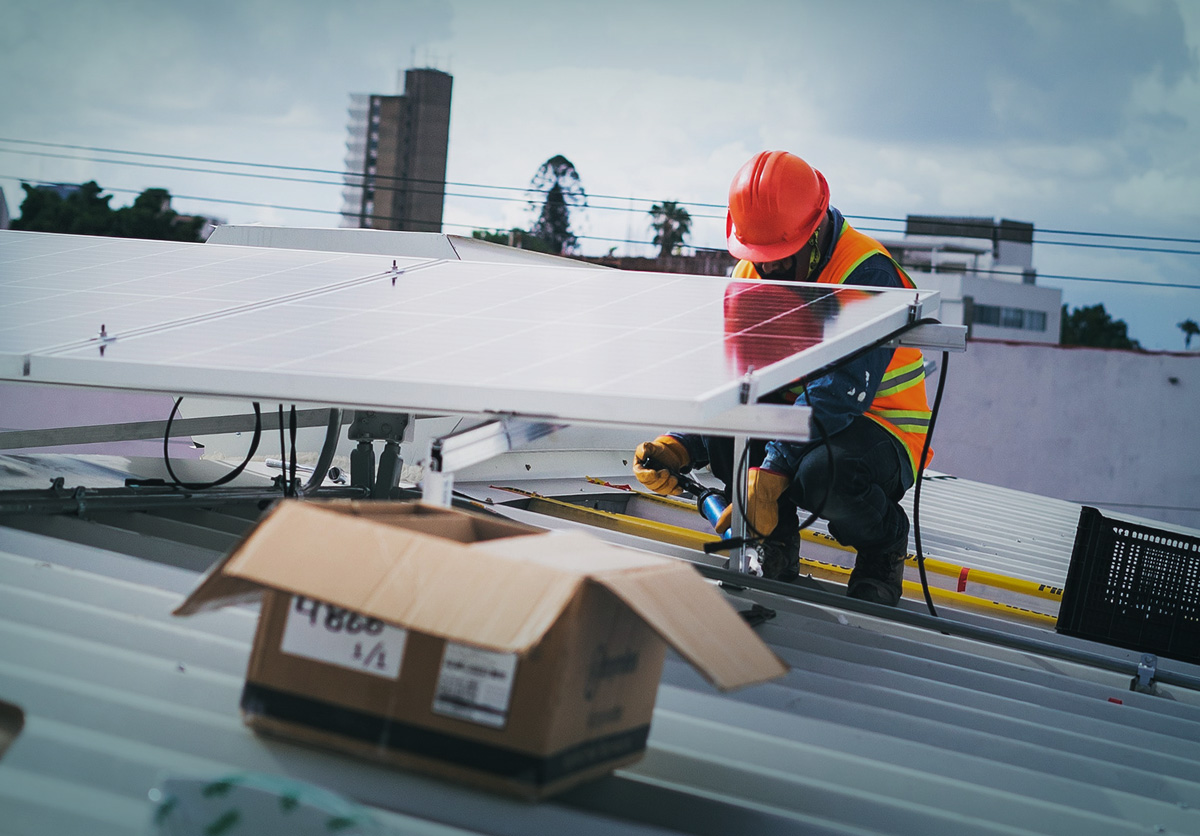Today, we have an abundance of commitments to act on climate change ranging from local municipalities to national governments and from small entrepreneurs to multinational companies. While there is global, broad-based corporate momentum to publicly commit to decarbonization, figuring out how to quickly implement these commitments is the challenge of the century.
The success or failure of the global community to decarbonize and keep warming to below 1.5⁰C, as per the Paris Agreement, requires private sector action and partnership. Thankfully, even amidst growing geopolitical uncertainty, supply chain challenges, and inflation, we have not seen companies shying away from these decarbonization goals. Instead, companies are seeking out help from the market, investors, and even customers on how to reduce their carbon footprints and increase resilience against climate-related disasters. This momentum is evident in the latest edition of BCSE and BloombergNEF’s Sustainable Energy in America Factbook. Three market signals stand out in the Factbook, demonstrating that the U.S. economy is more deeply rooted in clean energy and energy efficiency than ever before:
- Global private investment in the energy transition soared in 2021 to $755 billion. A record-breaking $105 billion went into new U.S. clean energy assets.
- Developers built a record 37 gigawatts (GW) of wind and solar power-generating capacity. Solar enjoyed its best year ever with 24.2 GW added, while wind had its third-best year at 13 GW added.
- A total of 351 companies globally have now pledged to procure 100% renewable energy, with 65 new companies joining the RE 100 list in 2021, including nine from the United States. Large energy consumers, namely large corporations, continue to drive the U.S. energy transition by demanding more clean energy.
These corporate commitments and bullish global investments are encouraging trends. U.S. Secretary of Energy Jennifer Granholm estimates the global market for clean energy technologies to be valued at $23 trillion by 2030, and an enormous economic opportunity for the U.S. to become a leader.
The question remains: “How do we get there from here?”
For many commercial, institutional, and industrial companies, sustainability commitments cannot be met without third-party financing. In addition, many of the firms making commitments lack a near-term action plan to get projects underway that reduce carbon emissions now.
One route to accelerate and scale climate action is through innovative financing solutions like Energy as a Service (EaaS), whereby building owners and companies outsource the funding and implementation of sustainable energy upgrades to third-party owners of new, more energy-efficient and clean energy equipment. The market for EaaS is roughly $7 billion and is estimated by Guidehouse to reach $66 billion by 2030.
At Metrus, we are increasingly partnering with companies that have made a Science Based Targets initiative (SBTi) commitment but don’t know where or how to start. Getting clean energy and energy efficiency projects in motion is essential and EaaS providers can help companies assess and size projects that reduce GHG emissions. Currently, there are more than 1,000 companies worldwide—representing more than $23 trillion in market capitalization—that have made commitments under the SBTi to decarbonize at the pace and scale required to limit global warming to 1.5°C.
An energy transition of this magnitude also requires regulations that spur and speed climate action. These regulatory shifts and standardization of carbon reporting can be seen in the U.S. Securities Exchange Commission (SEC)’s proposed rules to enhance and standardize climate-related disclosures for investors, and in the ongoing work of the international Task Force on Climate-Related Financial Disclosures. The ramp to net-zero has steepened and the move to incorporating sustainable accounting standards will boost this trend.
2022 will be a growth year for sustainable energy projects in the United States. Both familiar and new challenges exist. But there are also important dynamics that are propelling both public and private sector actors forward to address climate change and increase resilience, improve efficiency, and reduce GHG emissions in our operations. The opportunities are great—in nature and number—to work together towards this shared goal of a decarbonized future.
About the Authors: Bob Hinkle is President and CEO, Metrus Energy and Lisa Jacobson is the President, Business Council for Sustainable Energy.

